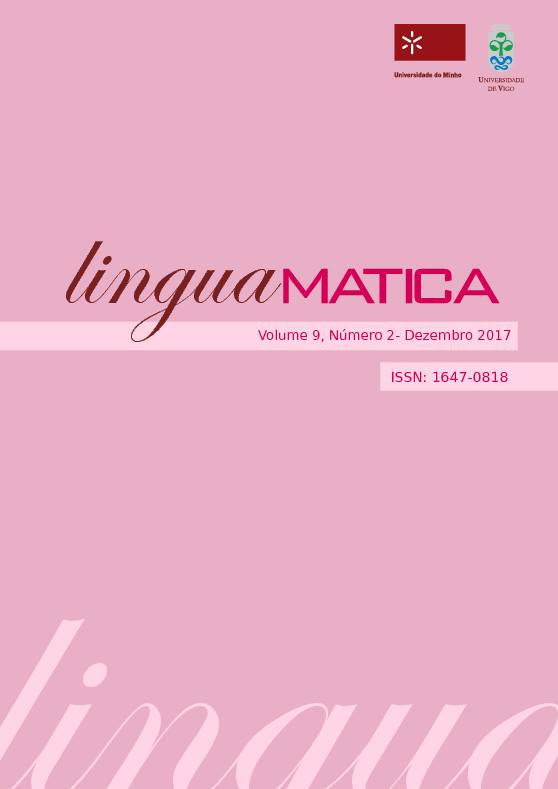Automatic detection of non-deverbal eventive nouns in Spanish: a quantitative, corpus-based approach
Abstract
We present a study in the field of the automatic detection of non-deverbal eventive nouns, which are those nouns that designate events but have not experienced a process of derivation from verbs, such as fiesta (`party') or cóctel (`cocktail') and, for this reason, do not present the typical morphological features of deverbal nouns, such as -ción, -miento, and are therefore more difficult to detect.In the present research we continue and extend the work initiated by Resnik (2010), who offers a number of cues for the detection of this type of lexical unit. We apply Resnik's ideas and we also add new ones, among them, the inductive analysis of the words that tend to co-occur with eventive nouns in corpora, in order to use them as predictors of this condition. Furthermore, we simplify the classification algorithm considerably, and we apply the experiments to a larger corpus, the EsTenTen, comprising more than 9 billion running words. Finally, we present the first results of the automatic extraction of eventive nouns from the corpus, among which we find plenty non-deverbal nouns.
Published
2017-12-31
How to Cite
Nazar, R., Soto, R., & Urrejola, K. (2017). Automatic detection of non-deverbal eventive nouns in Spanish: a quantitative, corpus-based approach. Linguamática, 9(2), 21-31. https://doi.org/10.21814/lm.9.2.253
Issue
Section
Research Articles
Authors who publish with this journal agree to the following terms:
- Authors retain copyright and grant the journal right of first publication with the work simultaneously licensed under a Creative Commons Attribution License that allows others to share the work with an acknowledgement of the work's authorship and initial publication in this journal.
- Authors are able to enter into separate, additional contractual arrangements for the non-exclusive distribution of the journal's published version of the work (e.g., post it to an institutional repository or publish it in a book), with an acknowledgement of its initial publication in this journal.
- Authors are permitted and encouraged to post their work online (e.g., in institutional repositories or on their website) prior to and during the submission process, as it can lead to productive exchanges, as well as earlier and greater citation of published work (See The Effect of Open Access).













